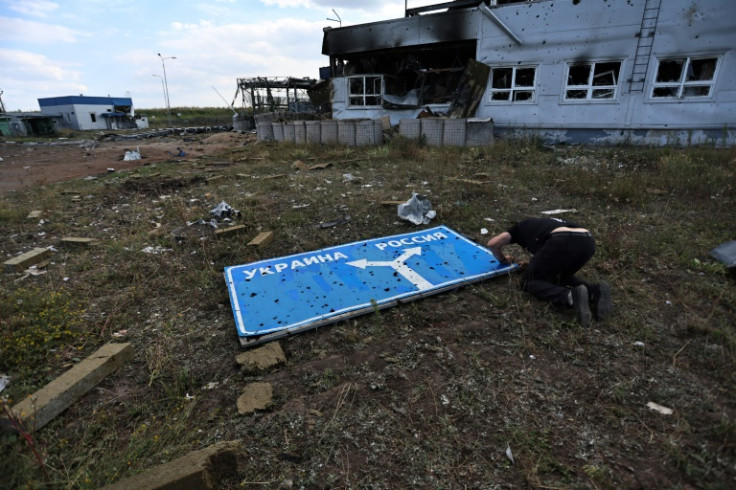
Ukraine's military incursion into Russia, a first in the two-year-old war, has handed Kyiv the initiative on the battlefield, but its outcome remains highly uncertain, analysts say.
Ukraine surprised everybody, including its own allies, when it sent troops over the border on August 6 two-and-half years after Russia launched its invasion, and has made claims of new gains almost daily.
The incursion has covered 1,250 square kilometres (482 square miles) so far, according to Ukraine, while Russia says it has contained the Ukrainian attack.
Responding to requests from allies, Ukraine has stated the objectives of its attack, saying that it did not seek to "occupy" Russian territory, but was looking to raise pressure on Russia ahead of any future negotiations.
"It's a gamble, with the aim of maybe swapping the conquered areas against Ukrainian territory elsewhere," Pierre Razoux, Academic and Research Director at the FMES strategic think tank, told AFP.
Ukrainian President Volodymyr Zelensky said Monday that the incursion was achieving Kyiv's objectives, which officials have previously said include stretching Russian forces, destroying Russian military equipment, creating a "buffer zone" and bringing the war "closer" to an end on "fair" terms.
Ukraine had to limit the size of the military contingent it sent into Russia, as most of its army's potential is tied up on the main front.
Razoux said Ukraine had sent "a few mobile brigades" and some motorised units featuring mostly western equipment which included "a lot of wheeled armoured vehicles".
Michel Goya, a military historian, added that Ukraine probably succeeded in weakening Russian defences "with drones, electronic warfare and the infiltration of ranger units".
But after rapid early advances, the Ukrainian attack has slowed as Russia deploys more solid defences.
"After initial disarray and disorganisation, Russian forces have deployed in greater force in the region," the British defence ministry observed last Friday.
With its attack, Ukraine is engaging Russia on a second front for the first time since the war started, creating a situation that neither will be able to bear for very long, said Mick Ryan, a retired Australian general.
"While both might be able to surge their forces for short periods, it is unclear if the Ukrainians or Russians can sustain such an approach for months at a time," he said. "One side or the other will have to make a difficult choice about their priorities."
Ukraine's position in Russia could become, over time, more fragile especially as Moscow's army continues to make steady gain in Ukraine.
Vasily Kashin, a Russia-based political scientist, noted that Ukraine had hurt Russia's prestige with its wide-ranging incursion, but had so far failed to take over any strategic sites.
Meanwhile as Russian winter approaches, Ukrainian troops may find that the usefulness of armoured vehicles is limited, because they move around on wheels, not chains.
Razoux said these vehicles were "very efficient" in the summer thanks to their speed and agility, "but when the rain, snow and mud arrive, they become a nightmare because they get stuck".
Moscow's tactic could consist of allowing the mobile units to advance, and then encircle them as they become bogged down, he warned. "This would neutralise Ukraine's strategic reserve."
Ukraine's western allies have been reacting cautiously to the Ukrainian incursion, worried that their weapons could be used on Russian soil, possibly sparking a strong Russian reaction.
It took US President Joe Biden a week to give his feedback on the incursion which he said had created "a real dilemma" for Russian President Vladimir Putin.
Britain, meanwhile, allows Kyiv to use a squadron of 14 British-made 14 Challenger 2 tanks deployed as it sees fit.
But Britain and western allies have put limits on the use of long-range missiles, such as the Storm Shadow cruise missile, to avoid escalating the conflict.
Germany, meanwhile, has announced a sharp reduction in its bilateral military aid to Ukraine.
Paris, still awaiting a new government, has not commented.
Kyiv's main aim may be to demonstrate to allies "that Russian victory is not inevitable, and that Ukraine can fight and win", said Ryan.
But, he added, this was unlikely to force any change in Putin's designs on Ukraine.
"As stunning and clever as the Ukrainian offensive in Kursk has been, it may not change Putin's overall war goals" he said.

.jpg?w=600)





